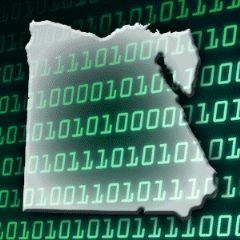 NEWS
NEWS
 NEWS
NEWS
 NEWS
NEWS
![]() Today we got the news that President Mubarak has finally ended his 30-year reign over the Egyptian people after over two-weeks of stiff protests from citizens and heavy pressure from the rest of the world. During the protest and social siege we saw what governments can do to attempt to shut down dissent—even as far as Egypt cut off the Internet connectivity to their country to attempt to curtail its use by the population. Technology and interconnectivity, however, always favors crowds and distribution than it favors monolithic regimes.
Today we got the news that President Mubarak has finally ended his 30-year reign over the Egyptian people after over two-weeks of stiff protests from citizens and heavy pressure from the rest of the world. During the protest and social siege we saw what governments can do to attempt to shut down dissent—even as far as Egypt cut off the Internet connectivity to their country to attempt to curtail its use by the population. Technology and interconnectivity, however, always favors crowds and distribution than it favors monolithic regimes.
The might of the protests came from the people on the ground themselves, but their courage and confidence certainly must have been bolstered by the tens of thousands of young people who used social networking sites like Facebook and Twitter to help organize the protests. A Bloomberg article on Mubarak’s resignation from presidency covers how social media affected these events,
Mubarak was brought down by an unexpected coalition of opposition politicians, members of the banned Muslim Brotherhood group and, most important, tens of thousands of young people who planned and organized the demonstrations on Facebook and Twitter.
Chief among them: Wael Ghonim, a 30-year-old Google Inc. executive whose social media expertise helped trigger and propel the demonstrations. He was arrested and held in secret detention for more than a week as Mubarak’s government shut down the Internet and mobile services, the tools he used to help make the protests possible.
Now they have a lot to look forward to. Primarily they have democratic elections in September to prepare for. The military themselves, who received power after Mubarak resigned, have made it clear that any successor to the current suggested interim ruler, Egypt’s vice-president, must be democratically elected according to reformed constitutional rules.
Elections mean people working together again, making a mass social decision about the direction they want to take their country, coming together to choose a leader.
Elections also mean technology and the infrastructure to not just make it work, but make it fair, and far reaching. Certainly, the people will want to do their elections in-house and build their own infrastructure; but they do have the eyes of the world now and the world uses social networks as well.
Leading the fray, we can probably expect the people of Egypt and the same who put boots-on-the-ground in the demonstrations to use Facebook and Twitter to get the news out about their opinions. The political candidates who will rise before the future September elections will need to be social-savvy themselves or at least have administrations that can leverage that resource. In fact, in the United States social media has taken a huge role in elections over the past few years and even the concept of technological reform has been brought to a head. However, it should be apparent to all that the democratic process is a social process; it involves communication, education, outreach, the ability to collect, tabulate, and collate the desires of the people and show that the decision is theirs.
Egypt (and the rest of the world) just watched the overarching power of social networks when it comes to mobilizing social change. They are now only seven months away from the biggest decision their country has ever made as a nation of individuals, each of whom have their own personal voice and stake in the matter. There are probably numerous technology companies champing at the bit right now to make their bones (or more money) facilitating the voting capability of Egypt when it comes down to the brass tacks.
Social media in general and the technology of giving people a voice has a lot to look forward to, especially after such a huge show of both terrible violence and breathtaking humanity.
We’ll probably continue to hear a lot about Egypt over the months between now and their elections; but the technology story will be their road from having little say in their government to hopefully having a great deal more. As the military calls for constitutional reform, democratic elections coming in September, perhaps we’ll see them integrate a lot more of what the Internet has to offer for giving people a voice in their government.
And while it happens, the rest of the world will keep their Facebook and Twitter feeds somewhere and watch with hope.
THANK YOU